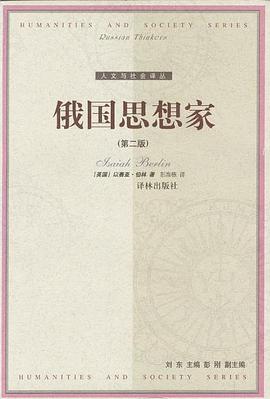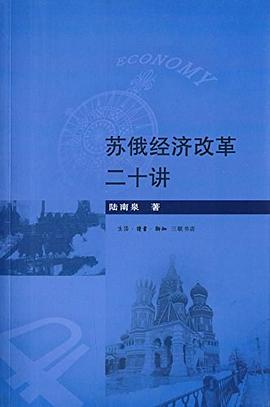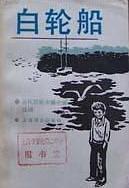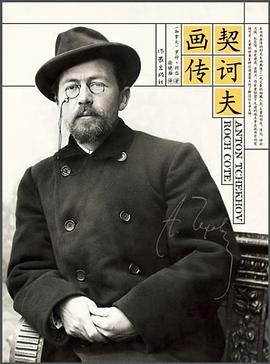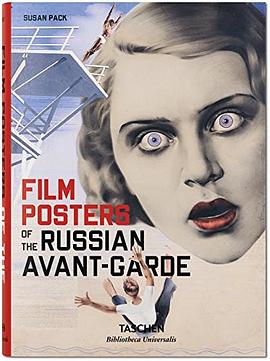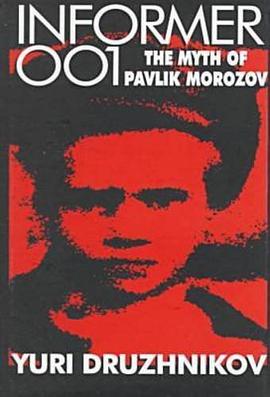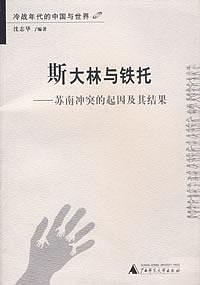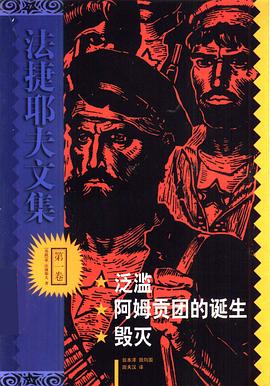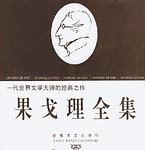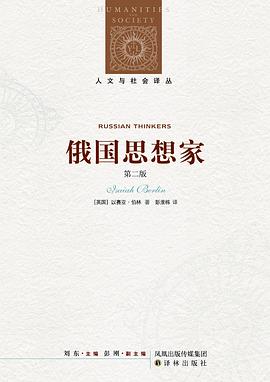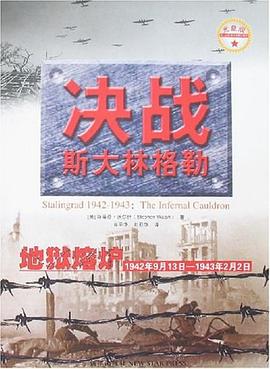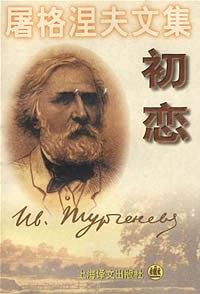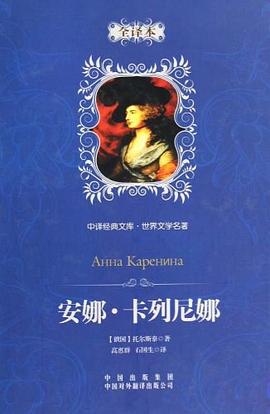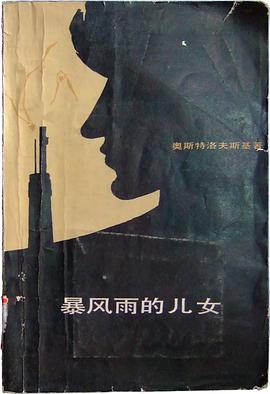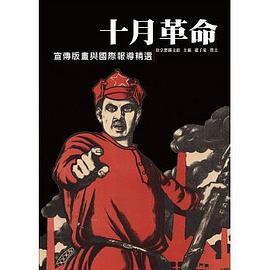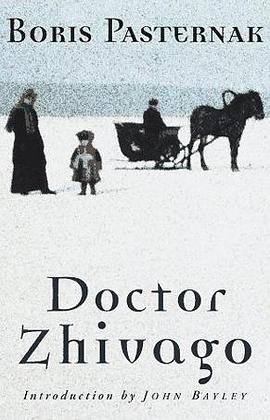

具体描述
This epic tale about the effects of the Russian Revolution and its aftermath on a bourgeois family was not published in the Soviet Union until 1987. One of the results of its publication in the West was Pasternak's complete rejection by Soviet authorities; when he was awarded the Nobel Prize for Literature in 1958 he was compelled to decline it. The book quickly became an international best-seller.
Dr. Yury Zhivago, Pasternak's alter ego, is a poet, philosopher, and physician whose life is disrupted by the war and by his love for Lara, the wife of a revolutionary. His artistic nature makes him vulnerable to the brutality and harshness of the Bolsheviks. The poems he writes constitute some of the most beautiful writing featured in the novel.
作者简介
Boris Leonidovich Pasternak was born in Moscow to talented artists: his father a painter and illustrator of Tolstoy's works, his mother a well-known concert pianist. Though his parents were both Jewish, they became Christianized, first as Russian Orthodox and later as Tolstoyan Christians. Pasternak's education began in a German Gymnasium in Moscow and was continued at the University of Moscow. Under the influence of the composer Scriabin, Pasternak took up the study of musical composition for six years from 1904 to 1910. By 1912 he had renounced music as his calling in life and went to the University of Marburg, Germany, to study philosophy. After four months there and a trip to Italy, he returned to Russia and decided to dedicate himself to literature.
Pasternak's first books of verse went unnoticed. With My Sister Life, 1922, and Themes and Variations, 1923, the latter marked by an extreme, though sober style, Pasternak first gained a place as a leading poet among his Russian contemporaries. In 1924 he published Sublime Malady, which portrayed the 1905 revolt as he saw it, and The Childhood of Luvers, a lyrical and psychological depiction of a young girl on the threshold of womanhood. A collection of four short stories was published the following year under the title Aerial Ways. In 1927 Pasternak again returned to the revolution of 1905 as a subject for two long works: "Lieutenant Schmidt", a poem expressing threnodic sorrow for the fate of the Lieutenant, the leader of the mutiny at Sevastopol, and "The Year 1905", a powerful but diffuse poem which concentrates on the events related to the revolution of 1905. Pasternak's reticent autobiography, Safe Conduct, appeared in 1931, and was followed the next year by a collection of lyrics, Second Birth, 1932. In 1935 he published translations of some Georgian poets and subsequently translated the major dramas of Shakespeare, several of the works of Goethe, Schiller, Kleist, and Ben Jonson, and poems by Petöfi, Verlaine, Swinburne, Shelley, and others. In Early Trains, a collection of poems written since 1936, was published in 1943 and enlarged and reissued in 1945 as Wide Spaces of the Earth. In 1957 Doctor Zhivago, Pasternak's only novel - except for the earlier "novel in verse", Spektorsky (1926) - first appeared in an Italian translation and has been acclaimed by some critics as a successful attempt at combining lyrical-descriptive and epic-dramatic styles.
Pasternak lived in Peredelkino, near Moscow, until his death in 1960.
目录信息
读后感
2016年10月13日瑞典皇家学院宣布,授予美国摇滚乐歌手鲍勃·迪伦诺贝尔文学奖。这一决定震惊四座,一时间引发了众多评议,有人说这是向口头文学传统的伟大致敬,也有人说这是官方奖项对鲍勃·迪伦的一次成功收编。紧接着,便曝出了鲍勃·迪伦拒绝诺奖的新闻,随后是对这则新闻...
评分日瓦戈之死(完整未删节版) □任晓雯 一九二九年,夏杪。 日瓦戈赶早,去索尔达金科夫医院报到。电车出了故障,时走时停。雷电撕破闷热,一街尘土落叶,狂旋出风的形状。坐在车窗边的日瓦戈,感觉昏瞀无力。打不开窗,便往后门挤。他在怒骂和踢踹中,“从电车踏板迈到石板路...
评分第一次拜读诺贝尔文学奖获得者帕斯捷尔纳克的长篇小说《日瓦戈医生》,再一次重温了俄国十月革命前后的一系列重大历史事件:1905年革命,第一次世界大战,二月革命,十月革命,国内战争,新经济政策,社会主义建设。在深度阅读中,充分领略了俄国作家所擅长的写作风格,将气势...
评分用了两个星期才看完了这部早已名声在外的大部头小说,苦恼于拗口的俄式人名和一个人三四个的昵称,在度过了阅读过程中反复翻看前面的人名对照表后渐入佳境。 合上书本后长吁一口气,说实话没有丝毫的高兴,倒是想一吐心中的积郁之气。这是一个矛盾的过程,在书展上一睹朱天文...
评分用户评价
说实话,这本书的叙事节奏处理得相当巧妙,它并非那种一气呵成的快节奏故事,而更像是一幅徐徐展开的、层次丰富的油画。你得耐下性子,去品味那些看似闲笔的细节,因为正是这些看似不经意的描摹,构建起了那个时代的坚实骨架。我特别喜欢它对社会阶层变迁的观察,那种贵族阶层逐渐瓦解、新旧秩序交替时的那种微妙的张力,被作者捕捉得极其精准。每一次情节的转折,都带着历史的必然性,让人在扼腕叹息之余,又不得不承认这就是历史的残酷真相。这本书的伟大之处,或许就在于它没有简单地给出对错的判断,而是将所有的复杂性都摊开来,让读者自己去体会和消化。它像一面镜子,映照出的是时代对个体命运的无情碾压,以及个体如何在巨大的洪流中试图保持自我尊严的艰难努力。读完之后,那种对“时代”这个抽象概念的理解,又深入了一层。
评分这本书对我来说,更像是一次对“坚韧”的深刻教育。那些生活在动荡中的人物,他们没有放弃对美的追求,对真挚情感的渴望,这才是最动人心魄的力量所在。我特别留意了书中对环境细节的描写,比如雪地上的脚印、炉火的微光、破旧房间里的家具陈设,这些微小的意象,无声地诉说着那个时代物资的匮乏和精神的匮乏。作者的视角是极其人文主义的,他关注的焦点始终是“人”——普通人在非凡境遇下的反应。相比于那些专注于政治斗争的书籍,这本书的视角更加贴近地面,更具有泥土的芬芳和人性的复杂。它让我明白,真正的英雄主义,往往不是那些惊天动地的壮举,而是那些在绝境中依然选择善良和坚守本心的日常选择。读完后,心中涌起的是一种对生命本身,那种近乎原始的敬畏。
评分这本书的结构和语言给我留下了极其深刻的印象,它展现了一种近乎完美的文学平衡。一方面,它具备了对历史背景的宏大叙事能力,让你对那个时代的脉络了然于胸;另一方面,它又极其擅长捕捉瞬间的情感火花,比如一个眼神的交汇,一句未尽的话语,这些都饱含着巨大的情绪张力。我特别赞赏作者对白描手法的运用,很多情绪的表达,并不依赖于冗长的心理描写,而是通过人物的外在行动和环境的烘托自然流露出来,这种含蓄的力量,比直白的倾诉要强悍百倍。它成功地避免了将人物脸谱化,每一个角色,无论立场如何,都有其复杂的动机和人性的光辉与阴影。读完后,我感觉自己像走完了一段漫长而崎岖的山路,虽然疲惫,但呼吸的空气似乎都变得更加清新和真实了。这本书绝对是值得反复品读的经典之作。
评分我得承认,这本书的阅读体验是充满挑战的,但绝对是值得的。它的文字密度极高,很多句子需要反复咀嚼才能体会到其中蕴含的多重意象。起初我有些不适应那种古典而略带沉郁的语调,但很快,我便沉醉于其间,仿佛自己被带入了一个由文字构建的、无比真实的过去时空。那些关于哲学思辨的片段,虽然晦涩,却极为精妙地串联起了人物的行动逻辑与精神内核。最让我震撼的是,作者似乎有一种魔力,能将宏大的历史叙事与最私密的情感波动完美地融合在一起,没有丝毫的突兀感。它不是在讲述一个简单的故事,而是在探讨“存在”本身的意义——在战争、饥荒和革命的背景下,我们如何定义“家”、“爱”和“自由”。这种深刻的叩问,使得这本书超越了一般的文学作品,具备了近乎史诗的重量感。
评分天哪,这本书简直就是一场关于人性、历史与爱情的宏大史诗,初读时我完全被卷入了那个动荡不安的年代。作者的笔触细腻得令人心惊,无论是对圣彼得堡冬日严寒的描绘,还是对乌拉尔山脉广袤无垠的刻画,都如同亲眼所见,身临其境。那些人物的命运,如同被历史洪流裹挟的浮萍,看似无助却又蕴含着一股顽强的生命力。我尤其欣赏作者对于内心世界的挖掘,那种在巨大社会变革面前,个体精神世界的挣扎、迷茫与最终的坚守,被刻画得入木三分。书中那些对诗歌、艺术、以及对纯粹情感的赞美,如同黑暗中的微光,照亮了那个时代的压抑与苦难。读完之后,我感到一种近乎透支的情感释放,仿佛自己也随之经历了一场漫长而深刻的洗礼,那种对生命本质的思考,久久萦绕心头,让人不得不重新审视自己所处的世界和内心深处的渴望。这本书的深度和广度,绝非三言两语可以概括。
评分老毛子的东西看得我昏昏欲睡,偏偏还是英译本
评分在再讀。
评分俄罗斯文学的英文书,我为什么不去找个中译的呢????
评分昨天花了23刀买到的。
评分作为长篇,在整体布局,人物塑造上都有缺陷。书中人物在大时代巨变中,面对坎坷命运所显现的坚韧,悲悯,真是高贵。
相关图书
本站所有内容均为互联网搜索引擎提供的公开搜索信息,本站不存储任何数据与内容,任何内容与数据均与本站无关,如有需要请联系相关搜索引擎包括但不限于百度,google,bing,sogou 等
© 2026 onlinetoolsland.com All Rights Reserved. 本本书屋 版权所有

